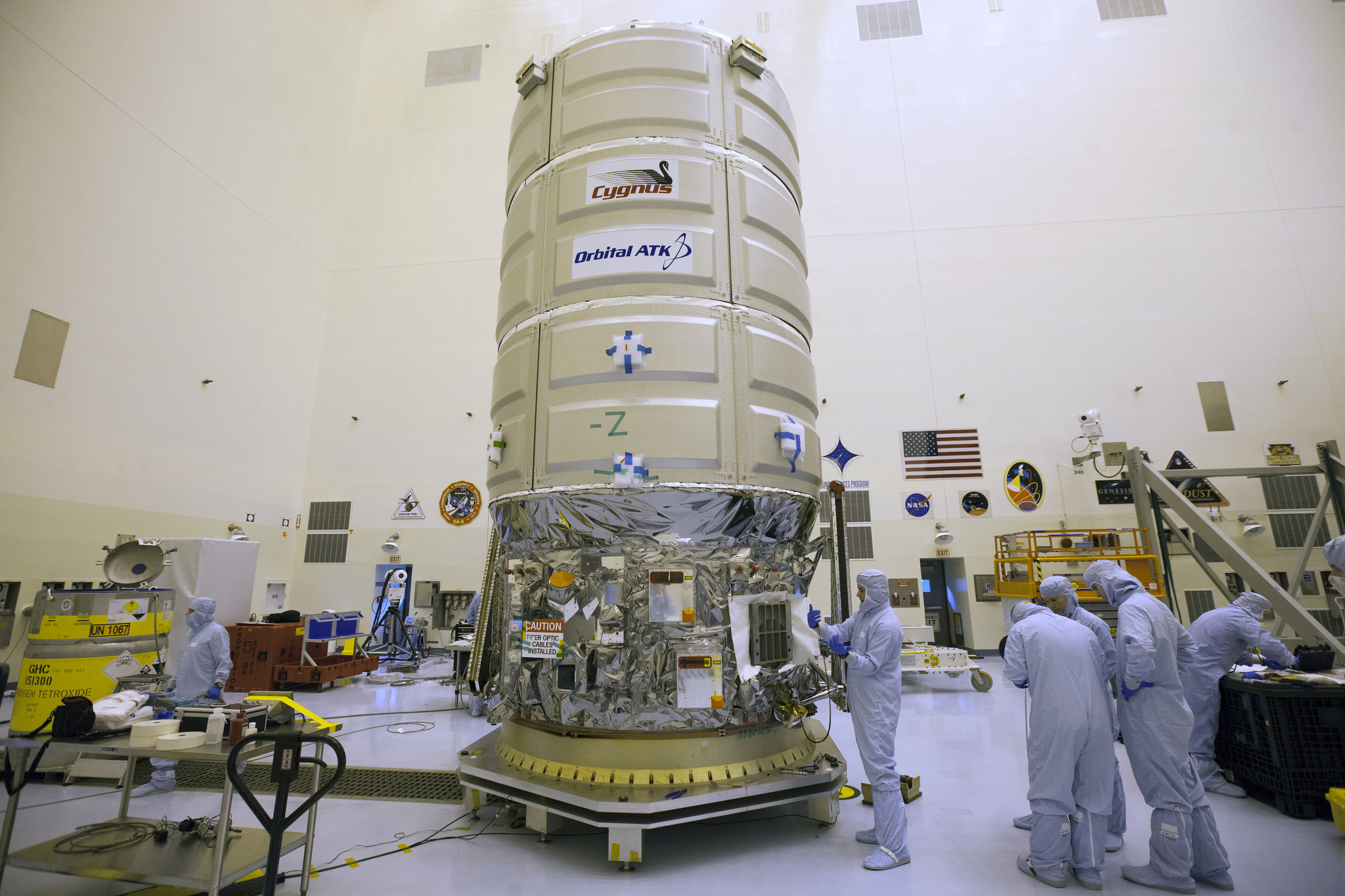Orbital ATK, ULA Target March 24 for NASA Cargo Launch

Next week's launch of an Orbital ATK Cygnus spacecraft packed with NASA cargo has been delayed by a few more days to Friday (March 24) to allow more time to replace a suspect rocket component, according to NASA officials.
The robotic Cygnus spacecraft was previously scheduled to lift off from Cape Canaveral Air Force Station in Florida on Tuesday (March 21) atop an Atlas V rocket provided by the United Launch Alliance (ULA). That March 21 target had already been delayed from March 19 due to concerns over the suspect hydraulic component on the Atlas V's first stage.
"The additional time allows the ULA team to replace and retest a first stage hydraulic component," NASA officials wrote in a status update.
Liftoff for Orbital ATK's OA-7 cargo mission for NASA is now scheduled for March 24 at 9 p.m. EDT (0100 Saturday GMT). Orbital ATK and ULA may have an option to move the launch a day earlier — to Thursday, March 23 — if time allows on the Eastern Range used to for Florida launches.
Orbital ATK typically launches its Cygnus cargo ships on the company's own Antares rockets, which fly from a pad at NASA's Wallops Flight Facility on Wallops Island, Virginia. For the OA-7 mission, Orbital ATK opted to launch Cygnus on ULA's Atlas V rocket due to the booster's increased lift capacity.
The OA-7 mission is expected to deliver 7,600 lbs. (3,447 kilograms) of supplies and research equipment to the International Space Station for NASA. Orbital ATK has named the Cygnus the S.S. John Glenn in honor of the astronaut pioneer John Glenn, the first American to orbit Earth, who died in December.
Email Tariq Malik at tmalik@space.com or follow him @tariqjmalik and Google+. Follow us @Spacedotcom, Facebook and Google+. Original article on Space.com.
Breaking space news, the latest updates on rocket launches, skywatching events and more!

Tariq is the award-winning Editor-in-Chief of Space.com and joined the team in 2001. He covers human spaceflight, as well as skywatching and entertainment. He became Space.com's Editor-in-Chief in 2019. Before joining Space.com, Tariq was a staff reporter for The Los Angeles Times covering education and city beats in La Habra, Fullerton and Huntington Beach. He's a recipient of the 2022 Harry Kolcum Award for excellence in space reporting and the 2025 Space Pioneer Award from the National Space Society. He is an Eagle Scout and Space Camp alum with journalism degrees from the USC and NYU. You can find Tariq at Space.com and as the co-host to the This Week In Space podcast on the TWiT network. To see his latest project, you can follow Tariq on Twitter @tariqjmalik.
